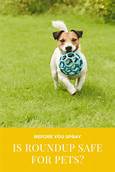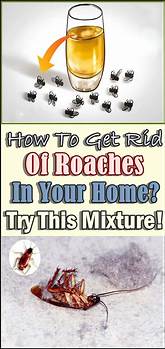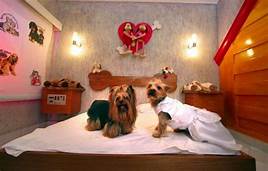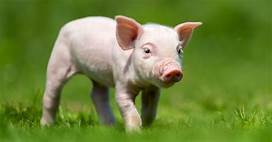Is Roundup Safe for Pets?
Roundup is one of the most popular weedkillers on the market. As a homeowner, you may have it in your garage right now for use on unwanted weeds and grasses around your property. There's no doubt that this product is an effective herbicide, but is it safe for a home with pets?

Can Pets Get Sick from Roundup?
Roundup's main ingredient, glyphosate, is considered to be relatively safe for pets, according to the Environmental Protection Agency (EPA). However, it can still cause health problems if ingested or absorbed through the skin in large amounts. Pets can get sick from Roundup if they:
- Drink or lick it directly
- Eat plants, grass, or soil that has been recently treated
- Inhale it while it is being sprayed
- Roll around in areas that have been treated
Symptoms of Roundup Poisoning in Pets
If you think your pet has been exposed to Roundup, watch for these potential symptoms:
- Vomiting
- Diarrhea
- Nausea
- Lethargy
- Loss of appetite
- Sneezing
- Coughing
- Skin irritation
- Eye irritation
- Breathing difficulties
How to Minimize the Risk to Your Pets
To reduce the risk of Roundup poisoning in your pets, take these precautions:
- Keep Roundup products out of reach of your pets. Keep them in a locked cabinet or high shelf.
- Follow the instructions on the product label carefully when using Roundup. Do not apply it near areas where your pets may be present.
- Water your lawn or garden thoroughly after applying Roundup. This will help to dilute the herbicide and reduce the risk of your pets ingesting it.
- Do not let your pets graze on grass or eat plants that have been recently treated with Roundup.
- If you think your pet has been exposed to Roundup, call your veterinarian immediately.
Conclusion
You can use Roundup around your home without putting your pets at risk by taking a few simple precautions. Keep Roundup products out of reach, apply them per label instructions, water your lawn or garden thoroughly afterward, and don't let your pets near treated areas until they have dried.
Declaration: All article resources on this website, unless otherwise specified or labeled, are collected from online resources. If the content on this website infringes on the legitimate rights and interests of the original author, you can contact this website to delete it.





